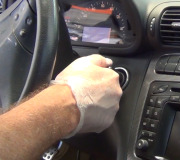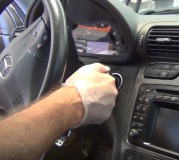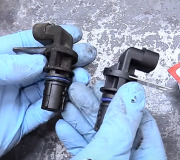We have checked all of the harness connecters and they are correct. This was a fleet vehicle and has excellent maintenance records.
Update: Took out the spark plugs and let the cylinders dry overnight. 6 new spark plugs later with dry cylinders, the car starts and runs. Now is idling smooth in park, when you shift into gear starts to idle rough, but once above 2000 rpms, motor smooths out.
In response to Blondemommy, the heads were pressure checked also. Motor runs great once above 2000 rpms. No loss of power that low compression would indicate. Thank you so much for response. I have had this car for 2+ years and love it. No service engine or check engine lights. No codes to read. Some of the spark plug wires were arcing off of the exhaust manifold so we replaced them but it didn't seem to help the miss. Now I am into this car for about 300$ in repairs. I just don't know what to check next or even if it is worth it.
SPONSORED LINKS
Friday, January 18th, 2008 AT 2:21 PM




